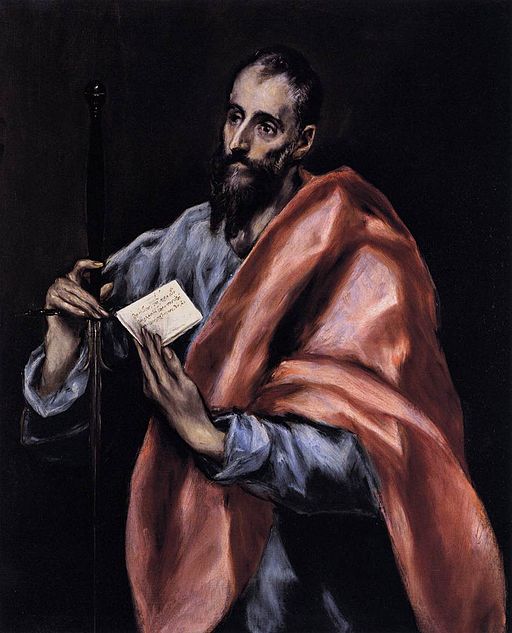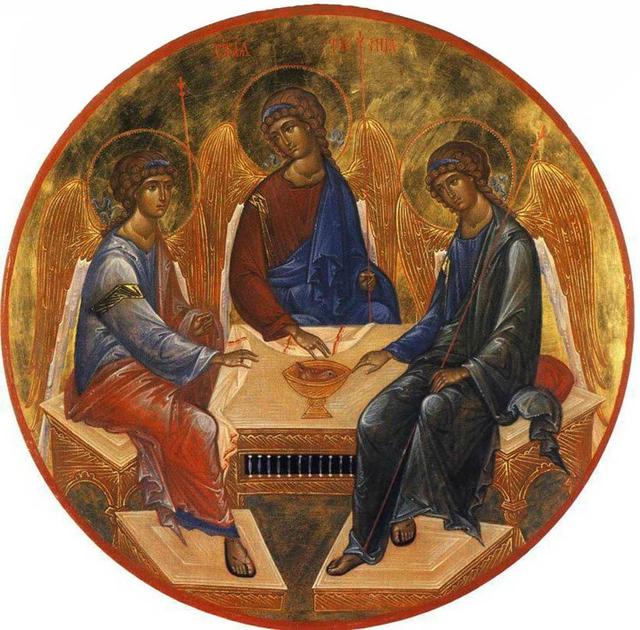Accept, Welcome and Cultivate
Solemnity of SS Peter & Paul,Solemnity (29 Jun 2014)
Ac 12. 1-11; Ps 34; 2Tm 4. 6-8,17-18; Mt 16. 13-19
Homily of Fr. Paul Panaretos, S.J.
Apostle-martyrs, Peter and Paul, form a bedrock for Roman Christianity. For ages it hails them: Peter, who established the early Church from the remnant of Israel; Paul…outstanding preacher…and teacher of the Gentiles God invites.1 Each gave supreme witness to the Lord of their lives when they shed their blood in Rome. Their lives and ministries are so crucial that we celebrate their solemnity even when it falls on a Sundays.
 I want to reflect with you on one aspect of their lives. It is not about their greatness: their loyalty; their commitment; their generosity; their desire to proclaim Jesus in deed as well as word. That would not be as helpful. Why? Because greatness is a bar set high; and it is hard to reach. To begin where we are is more helpful. Let me reflect with you on their weakness and its root. Along the way we will notice that weakness says more about God than about us.
I want to reflect with you on one aspect of their lives. It is not about their greatness: their loyalty; their commitment; their generosity; their desire to proclaim Jesus in deed as well as word. That would not be as helpful. Why? Because greatness is a bar set high; and it is hard to reach. To begin where we are is more helpful. Let me reflect with you on their weakness and its root. Along the way we will notice that weakness says more about God than about us.
God creates all things at each moment. God creates humans in the divine image and likeness.2 That is our triune God’s eternal desire. You and I seek to discover God’s desire, namely, who God creates each of us to be. Discovering God’s desire challenges us. It challenges us because, in the words of Jesuit and spiritual guide William Barry, “We are not born into a world that is totally in tune with God’s purposes”3 and desires. Bible and church language name our challenge sin. Sin is our root weakness not to be in tune with God’s purposes and desires.
St. Peter realized his weakness in the presence of Jesus. At the catch of fish that filled two boats so they nearly sank, Peter said told Jesus, Depart from me, Lord, for I am a sinful man. The radiance of Jesus and his life readily reveals to us the darkness of our weaknesses. We often flounder in them. Jesus accepts our weaknesses more freely than we do. Jesus is not deterred by any weakness, including sin. To Peter and his companions he responded, Do not be afraid; from now on you will be catching humans.4 Our weaknesses rarely disappear, and its root does not. St. Peter witnesses to us that we need not let our weaknesses hold us captive. In his sacraments, especially the Sacrament of Reconciliation, Jesus pardons our sins to free us once more.
St. Paul witnesses to us both freedom as we live with our weakness and freedom’s source. He was no stranger to weaknesses. A physical illness once occasioned preaching the gospel.5 Paul endured in part because people accepted his infirmity. Yet that weakness or another—we will never know—was more than Paul could bear even with the compassionate understanding of others. He prayed God to remove it from his life. St. Paul grew aware that God could not be defied by weakness; and he recognized God responded to him: “My grace is sufficient for you, for power is made perfect in weakness.”…Therefore, I am content with weaknesses, insults, hardships, persecutions, and constraints, for the sake of Christ; for when I am weak, then I am strong.6
Weak and strong echo dead and risen. When we do not deny our weaknesses we participate in Jesus’ death. The fruit of his dying is risen life; Jesus gives us a share in it even now to free us so we may proclaim him by our actions.
In their ways Ss. Peter and Paul accepted the compassionate love of Jesus: Peter allowed risen Jesus to guide him7; Paul welcomed Jesus to live in and through him.8 If they had not their apostolic ministries would have withered. So it is for us. Inborn weaknesses and those that visit us later in life tend to make us fight and resist. The pattern insinuates itself in our deepest selves, and we end up fighting and resisting not only weaknesses. We fight and resist others, including Jesus and his compassion for us. If I fight Jesus’ compassion, I remain captive to my sinfulness. Ss. Peter and Paul set a foundation on which all of us can stand confidently so we may accept Jesus’ compassion for us, welcome it and cultivate it daily.
In your 15 minutes with Jesus this week
- Let yourself feel the Trinity recreate you lovingly in the divine image.
- Ask Ss. Peter and Paul to present you to Jesus.
- Chat with him: Praise Jesus for dying and rising for you. Thank Jesus for befriending you as his ambassador.
- Ask Jesus to help you learn him better so you may grow in his freedom.
- Close saying slowly the Lord’s Prayer. Jesus gave it to us to assure us his compassion for us is our friendship with him. Friendship with Jesus shapes us to befriend others in his name and with his compassion.
Link to this homily’s Spiritual Exercise
____________
- Preface, Solemnity of Ss. Peter and Paul, Mass During the Day.
- Genesis 1.26-27; Genesis 5.1-3; James 3.9.
- William A. Barry, S.J. Praying the Truth: Deepening Your Friendship with God through Honest Prayer Chicago: Loyola Press, 2012. Kindle Edition. (Kindle Locations 1341-1342).
- Luke 5.8-10.
- Galatians 4.13-14.
- 2 Corinthians 12.7-10.
- John 21.15-19 is a narrative that deepens Jesus’ earlier calls for Peter to follow him.
- Galatians 2.20.
____________





